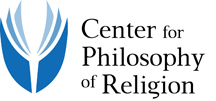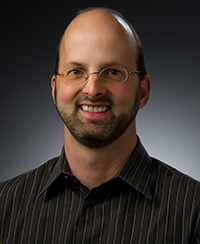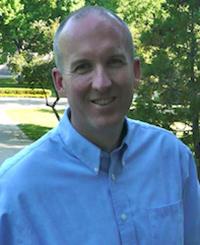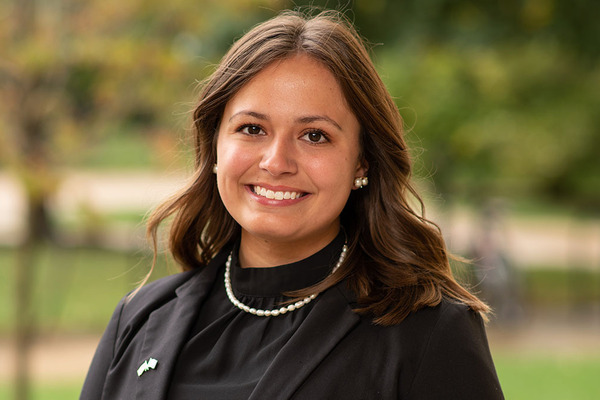
Two research initiatives housed in Notre Dame’s Center for Philosophy of Religion have awarded nearly $4 million in grants to 40 research projects seeking to advance understanding of the concepts of hope and optimism as well as religious and transformative experiences.
Hope and Optimism: Conceptual and Empirical Investigations, funded through a generous grant from the John Templeton Foundation, is an interdisciplinary research collaborative between the University of Notre Dame and Cornell University. It handed out nearly $2 million to 18 projects in five countries, supporting research that will examine the theoretical, empirical, and practical dimensions of hope and optimism.
The initiative—co-directed by Samuel Newlands, the William J. and Dorothy K. O’Neill Collegiate Associate Professor of Philosophy in Notre Dame’s College of Arts and Letters and Andrew Chignell, associate professor of philosophy at Cornell’s Susan Linn Sage School of Philosophy—is bringing together philosophers, social scientists, and theologians for residential and non-residential fellowship programs, conferences, writing projects by the co-directors, and creative stage and screen competitions.
 Samuel Newlands
Samuel Newlands
“Hope is a concept that we talk about every day, but we don’t understand it all that well,” said Newlands, co-director of the Center for Philosophy of Religion. “There is an incredible range of topics being explored, and that shows us just how ubiquitous hope is in our lives.”
The Experience Project, a research collaboration that aims to build new understanding about how religious and transformative experiences occur and shape people’s lives, gave more than $1.7 million going to 22 projects.
The overall $5.1 million project, also supported by the John Templeton Foundation, looks to answer questions about how religious experiences affect a person’s concept of God; how transformative experiences can affect a person’s identity, values, belief system, and behaviors; and how religious and other types of transformative experiences differ.
It is co-directed by Newlands and Michael Rea, a Notre Dame professor of philosophy, and L.A. Paul, a professor of philosophy at the University of North Carolina at Chapel Hill’s College of Arts and Sciences.
One component of the project, Rea said, focuses on the nature and significance of religious experiences.
 Michael Rea
Michael Rea
“We’re trying to figure out what we can and should conclude about God and God’s love for us through the patterns and varieties of religious experiences throughout the world,” he said.
Another component focuses on ordinary but momentous events people face every day, Paul said.
“The project takes a bold new approach to understanding some of life’s deepest existential questions by exploiting the resources of analytic philosophy and empirical social science to try and get a better sense of the importance and meaning of lived experience, self-realization, and our understanding of our place in the world,” she said.
The project offers non-residential funding and residential fellowships (at the Center for Philosophy of Religion and the University of North Carolina at Chapel Hill), and also funds a series of collaborative workshops.
Among the Hope and Optimism projects recently funded:
- “What Should I Hope From You?” by Adrienne Martin, a Claremont McKenna College professor of philosophy, politics, and economics, will examine how hope is invested in people, as opposed to objects. She will argue that through interpersonal hope and emotions, such as disappointment, gratitude, and appreciation, people encourage each other to meet challenging standards.
- “Are There Any Advantages to Racializing Hope?” by Andre Willis, an assistant professor of religious studies at Brown University, will look at how practical hopes linked to citizenship—inclusion, recognition, membership, and success—have framed the African American religious experience. Willis will explore religious narratives of hope that African Americans have built through a history in the United States that has often been marked by dehumanizing political conditions.
- “How Does Optimism Help Incarcerated Individuals Return to Their Communities, Overcome Barriers, and Become Positive Productive Members of Society?” by George Mason University psychologists Jeff Stuewig and June Tangney will explore the role optimism plays in the lives of incarcerated individuals and those reintegrating after being released. They will determine how optimism becomes a form of resilience among those in the criminal justice system and how that optimism changes over time based on types of experiences in that system.
Research supported by The Experience Project includes:
- “Receptivity of God through Ritual,” by Terence Cuneo, a University of Vermont professor of philosophy, will investigate the connection between religious experience and religious activity, especially liturgical activity in the Christian tradition. Through four essays, Cuneo will explore the ways in which people come to appreciate rituals and the crucial role they play in developing an ability to experience God in the ordinary.
- “Transformative Understanding,” by Tania Lombrozo, a University of California, Berkeley associate professor of psychology, will develop the claim that gaining understanding—as opposed to simply gaining knowledge—is a transformative experience that can change beliefs, values, and attitudes. Through a series of studies, she will investigate the nature of transformation people undergo when coming to understand something new and how that understanding can change worldviews.
- “Shifting Bodies, Shifting Feelings: Birth Transforms Positive Emotions from Self-Relevant to the Selfless,” by June Gruber and Sona Dimidjian, psychology faculty members at the University of Colorado Boulder, will test folk theory assumptions that birth radically transforms one’s experience of emotions in ways that cannot be understood without having had the experience. They will examine how birth enhances emotional diversity, specifically selfless emotions.
Complete lists of grants are available for both The Experience Project and Hope and Optimism.


